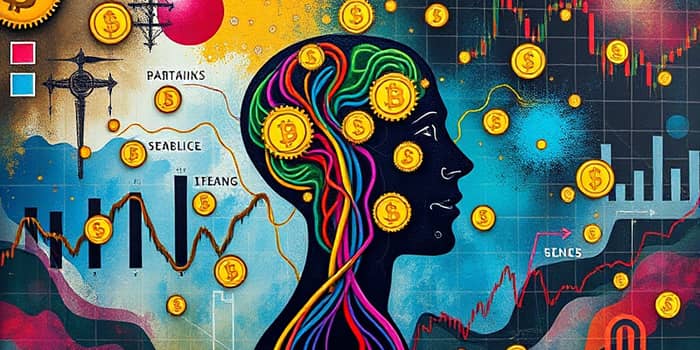Money is more than numbers on a screen; it’s deeply entangled with our minds and emotions. Every investment choice carries the imprint of our personal history, cultural background, and subconscious biases.
By recognizing these hidden forces, we not only gain insight into our own financial behavior but also learn to make decisions that align with our long-term goals and values.
Behavioral Finance vs. Classical Finance
Traditional financial theory is built on the assumption of the rational actor model. It treats investors as calculators who always choose the optimal path to maximize returns.
Behavioral finance rejects this idealized view, showing through research that people often deviate from purely logical choices. These deviations arise from cognitive shortcuts, emotional impulses, and social pressures.
Understanding the differences between these two frameworks is crucial for anyone seeking to navigate markets with both insight and humility.
Cognitive Biases Influencing Decisions
Cognitive biases are mental shortcuts that simplify complex decisions. While they can speed up judgment, they also create systematic errors. Below is a summary of some of the most influential biases.
These biases can distort judgment, causing investors to buy high, sell low, or miss out on long-term gains.
Emotional Drivers
Beyond cognitive quirks, emotions powerfully steer financial choices. Fear and greed can be powerful motivators in investing, prompting extreme reactions to market swings.
Stress hormones like cortisol and adrenaline flood the brain during high-stakes decisions, often triggering impulsivity or panic selling.
- Fear of loss: prompting premature exits.
- Greed: driving overexposure to risky assets.
- Stress-induced bias: leading to erratic choices.
Recognizing these triggers allows us to step back, breathe, and choose processes over impulses.
Social and Cultural Influences
We are social creatures. Our financial behavior is shaped by the communities we belong to, the media we consume, and the example set by family and peers.
From an early family environment that instills frugality or extravagance, to the contagious excitement of a roaring bull market, social proof can overrule personal analysis.
- Herd mentality in bull and bear markets.
- Family attitudes toward debt and saving.
- Media-driven sentiment swings.
By becoming aware of these external pressures, we can make more autonomous, values-driven decisions.
Neurobiology and Decision-Making
Our brains house the battle between emotion and logic. The limbic system triggers visceral reactions, while the prefrontal cortex endeavors to apply reason.
Hormones such as cortisol and adrenaline heighten stress responses, often at the expense of careful analysis. Neuroscience research shows individuals with impaired emotional integration struggle to make financially sound judgments.
By acknowledging this neurobiological tug-of-war, investors can adopt strategies that create breathing room for the rational mind to prevail.
Strategies for Better Financial Decisions
Conscious methods and habits can help counteract biases and emotional pitfalls. Below are practical approaches for anyone looking to improve their financial outcomes.
- Self-awareness practices: Journaling and reflection to spot triggers and biases.
- Structured decision-making processes: Implementing waiting periods, checklists, and predefined rules.
- Financial education: Studying both behavioral concepts and technical analysis.
- Seeking professional advice: Collaborating with advisors who emphasize psychology as much as analytics.
By embedding these tactics into our routines, we can balance emotional and rational input and build enduring wealth.
Conclusion
The psychology behind financial decisions is a vibrant blend of mind, brain, and society. Ignoring this reality leaves us vulnerable to hidden forces that can derail even the most diligent investor.
Embracing behavioral insights empowers us to recognize our biases, harness our emotions, and design systems that guide us toward more consistent, rewarding outcomes. In the ever-evolving landscape of markets, the greatest edge lies not only in data, but in understanding the human mind that interprets it.
References
- https://www.figmarketing.com/blog/the-psychology-of-financial-decision-making-understanding-behavioral-biases-and-improving-client-outcomes/
- https://www.abacademies.org/articles/behavioral-finance-the-psychology-behind-financial-decisionmaking-16266.html
- https://www.psychologytoday.com/us/basics/behavioral-finance
- https://savefirstfinancial.org/blog/decision-making-psychology
- https://tcgservices.com/2023/07/17/the-psychology-of-money/
- https://imarticus.org/blog/behavioral-economics-in-financial-decision-making/
- https://investor.vanguard.com/investor-resources-education/article/the-science-behind-money-and-emotion
- https://www.meetava.com/blog/behavioral-finance-the-psychology-behind-financial-decisions










